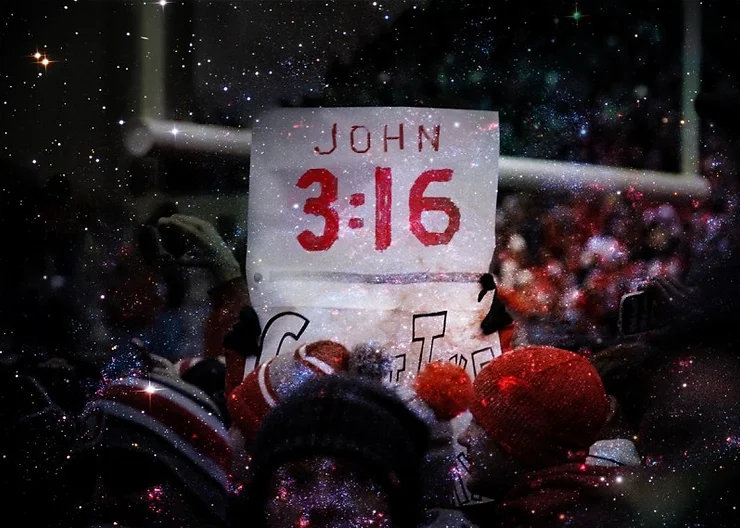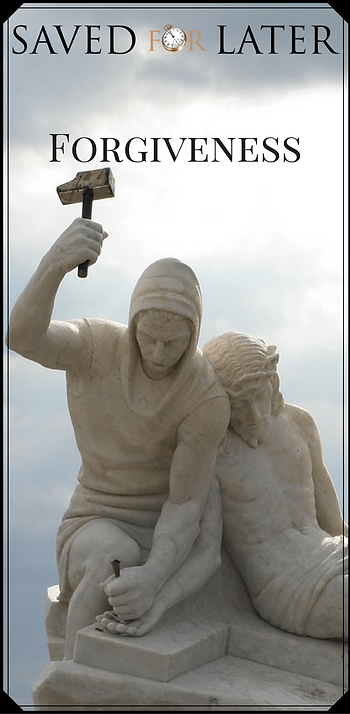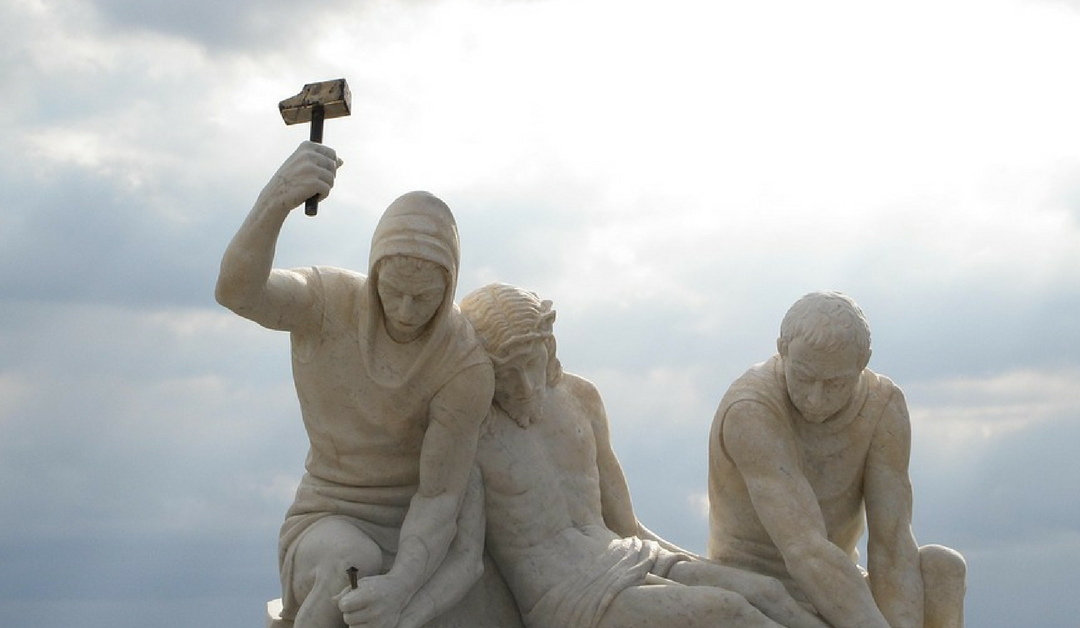“For if you forgive others their trespasses, your heavenly Father will also forgive you, but if you do not forgive others their trespasses, neither will your Father forgive your trespasses.” (Matthew 6:14-15)
For the past 2 weeks, we’ve been discussing our role in both loving God and loving our fellow man. This week, we are looking at a practical outworking of that love.
We cannot go to God and seek His forgiveness while withholding it from others in our lives any more than we can accept God’s love while not sharing it with others. Both gifts are to be passed on.

When we consider God’s loving act which sits at the heart of the Christian faith, we must recognize it as both an act of love by way of forgiveness as well as an act of forgiveness by way of love.
This act of atonement (or righting of a wrong) was the action needed for us to be forgiven of our sins – and therefore made righteous – so that we can spend eternity in the presence of the Father without burning up the way unforgiven sin would.
Now we are free.

Beyond our listening to what God has to say to us, God also desires to hear back from us; to hear our part of the conversation. That is called prayer.
Though prayer is often not easy – especially to a new believer – coming to God with our offers of forgiveness for those that we feel have wronged us is a pretty good conversation to start with in case you are ever looking for ideas.
It is often unlikely that we will ever have an opportunity to speak directly with many of the people we need to forgive. If we tell God, however, our hearts can still be changed.
It wasn’t until I could hand my ledger over to God with full faith that He would settle that debt and free me from my need to collect that I was actually forgiving others. This required much prayer.
Ironically, God has structured us in such a way that it is actually we who are freed when we forgive. Though there is freedom in God’s forgiveness, our freedom is compounded when we forgive others, even if we can never tell them.
“…and forgive us our debts, as we also have forgiven our debtors.” (Matthew 6:12)
Dear God, please forgive me for what I have done wrong: my debts, my sins, my trespasses (pause for effect), while I also forgive those who have done wrong to me.
Funny thing – as a Catholic kid, I said that prayer a bazillion times. It never occurred to me to forgive anyone, though. I guess it wasn’t my time yet.

The newly freed servant then sought repayment from one of his debtors by choking him and demanding that he repay him. Though the servant’s debtor also pleaded for more time, he refused and imprisoned him.
When the king learned of this, he asked the servant why he did not forgive his debtor the way the king had forgiven him. In anger, the king reinstated the debt and had the servant imprisoned (Matthew 18:23-34).
“So also my heavenly Father will do to every one of you, if you do not forgive your brother from your heart.” (Matthew 18:35)
If I have not yet succeeded in convincing you of a good reason to read the entire Bible on your own, then I pray I do so now:
- God forgives
- we accept His forgiveness
- but in so doing, we enter into an agreement to respond to that forgiveness in certain ways.

Unfortunately, the average pastor out there will leave out the un-rosy portions of Scripture for fear of driving people from his congregation. This is why going to church is not enough!!! We must read the Bible for ourselves.
Again, the idea of forgiveness is a challenging one. God has forgiven every conceivable incident of sin before they had (or will) even occur(ed), and He gave His Son’s life to do so. Let’s not forget that Jesus called on God to forgive the very men who nailed Him to the cross (Luke 23:34). When God asks for it, He can fully relate.
- You may have been sexually, physically, or emotionally abused as a child; possibly by a relative or loved one.
- A child of yours may have experienced the same thing.
- You may have been raped, beaten, maimed, or someone you love may have as well, or even killed.
- You may have come from a dysfunctional family with an abusive parent.
- You may have been wronged professionally or politically.
- You may have been lied to or about.
- Your vehicle may have been hit by a roadside bomb and scarred you for life.
- You may have been shot by an enemy combatant and changed forever.
- You may have watched as your best friend died at the hands of an enemy.
- You even have reason to need to forgive yourself.
The enemy consumes our hearts with the darkness of unforgiveness and blinds us from seeing the freedom that is in God and His forgiveness; both the forgiveness He bestows on us as well as the forgiveness He grants us to pass on to others. This is the height of the spiritual warfare that rages on in all of us.
When we turn to God and seek His forgiveness, then turn to our neighbors and our enemies and extend that same forgiveness, we are freed.
Welcome to the kingdom. now we have a choice to make:
- We can keep our hate alive and define ourselves as victims (or even survivors) of various atrocities. This is living life without Jesus.
- We can allow God to define us as His sons and daughters, fellow heirs with His Son to His kingdom.
Forgiveness is not an acceptance of or agreement with wrongdoing.
Forgiveness does not even mandate that a relationship necessarily continues with those who have done wrong by you. But it does necessitate that you do not hold this crime against the criminal. As counterintuitive as this may seem, it’s this act that frees you.
Long after our wrongdoers move on and forget about us, we can carry a burden of victimization and hatred in perpetuity. We cannot be spared this burden until we practice true forgiveness.
I have some recent experience with intentional forgiveness. To be fair, my experiences will pale in comparison to most of the examples I have listed above. They may also not measure up to the pain you are burdened with in your life. But the difficulty of this task does not negate its importance; it enhances it.
In my case, I was granted a freedom that permitted me to move forward as a better person spiritually, emotionally, and psychologically.
Admittedly, there are some things that I am still dealing with, but I am working on them. I have also spoken with people who have forgiven things that have amazed me and forced me to question whether I would possess such an ability were the same hand dealt to me.
I will tell you that in my own experience, and in all the experiences I have learned of – which are not inconsequential – I have yet to learn of a time where total biblical forgiveness did not yield to the forgiver an assurance of spiritual, emotional, and psychological wholeness and wellness.
Some, of course, took longer than others – to materialize as well as to be realized – but the end result never varied.
They were all freed by God.
Scripture quotations are from the ESV® Bible (The Holy Bible, English Standard Version®), copyright © 2001 by Crossway, a publishing ministry of Good News Publishers. Used by permission. All rights reserved.

